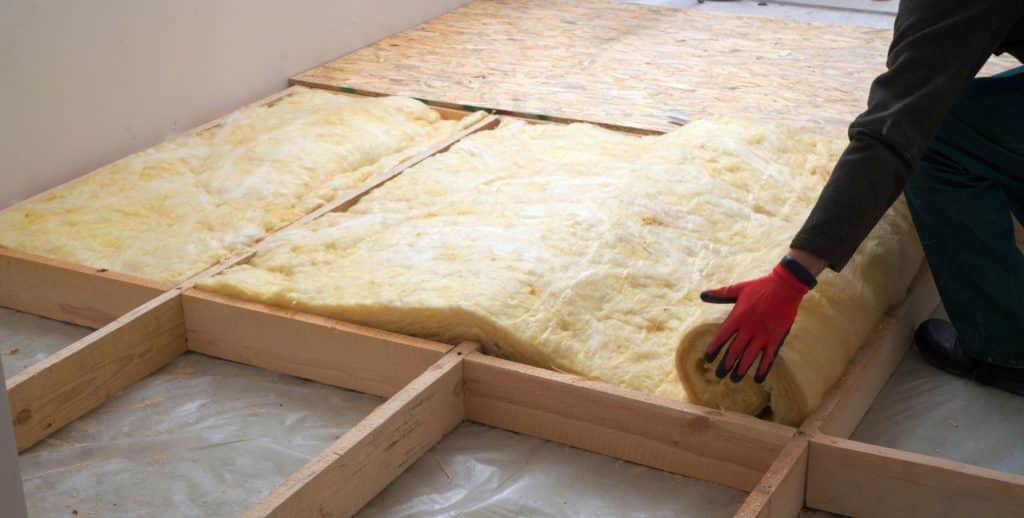In the world of comfortable and sustainable living, home insulation is often an unsung hero. It keeps our homes warm during winter, cool during summer, and helps our HVAC systems function optimally. Yet, despite its crucial role, the ins and outs of home insulation remain a mystery to many homeowners. This blog post will take you on a journey through the realm of home insulation, examining its role in your comfort, its relationship with your HVAC system, and the different types available, as well as the importance of professional installation and maintenance.
Understanding the Role of Insulation in Home Comfort
Essentially, your home’s insulation does acts like a barrier against the natural flow of heat. When it’s cold outside, insulation keeps your home’s warmth from escaping. On the flip side, when the sun’s scorching rays beat down on your home, insulation helps keep the heat outside where it belongs.
We’ve all experienced a sudden chill or an unexpected heatwave inside our homes. A deficiency in your home’s insulation can cause fluctuating temperatures, disrupting your comfort. When your home is properly insulated, it stays at a consistent temperature, keeping you comfortable no matter what Mother Nature decides to throw your way.
Insulation works by reducing heat transfer—preventing your home’s warm air from escaping during colder months and blocking out heat during hotter months. So, instead of your heater or air conditioner having to work overtime to compensate for lost or gained heat, insulation helps maintain a steady, comfortable indoor temperature throughout the year.
In the insulation game, thermal resistance is a main factor. Better known as the ‘R-value,’ this measures an insulation material’s resistance to conductive heat flow. The higher the R-value, the greater the insulation’s effectiveness. So when you’re making your insulation choices, always keep an eye on that R-value.
By understanding the role of insulation in home comfort, you’re one step closer to creating a more comfortable, energy-efficient home. But remember, insulation is just one piece of the puzzle. Your choice of insulation should suit your specific home needs and it should be properly installed and maintained for maximum effectiveness. Get in touch with the HVAC professionals at ACE Home Services for expert guidance and installation.
The Importance of Proper Insulation for Your HVAC System
Your home’s insulation is the guardian of your HVAC system. It’s not merely about maintaining a comfy home climate, but it also has a direct influence on your HVAC system’s overall performance and longevity. If your insulation isn’t up to par, your HVAC system is in for a rough ride. It will have to labor extra hard, consuming more energy and potentially overloading itself, to compensate for the continuous heat gain or loss.
However, when your insulation is just right, it eases the strain on your HVAC system. Just like a well-oiled machine, your system will not have to work extra to maintain your desired temperature. This means less wear and tear on your HVAC equipment and potential energy savings on your utility bill.
In simple terms, the right insulation can be the difference between a HVAC system that purrs along smoothly, and one that huffs and puffs to keep up with your comfort needs. So, while insulation may seem like a behind-the-scenes player in your home’s comfort, it holds center stage when it comes to enhancing your HVAC system’s performance and durability.
This just goes to show how vital a role insulation plays, not only in the comfort of your home but also in the efficient operation and longevity of your HVAC system. If you have any concerns about your home’s insulation, get in touch with the AZ HVAC experts at ACE Home Services for answers to all of your questions.
A Closer Look at the Most Common Types of Home Insulation
Navigating the home insulation market can be quite an adventure. Each type of insulation has its unique characteristics, benefits, and potential drawbacks. Here, we will shed light on the most prevalent types used in modern homes.
Fiberglass insulation is a common sight in many homes, and with good reason. It offers a reliable balance between performance and cost-effectiveness. You will typically see this as pink or yellow fluffy batts placed between wall studs, floor joists, and ceiling rafters.
Cellulose insulation is made from recycled newspaper treated with fire-retardant chemicals. With an eco-friendly aspect and a higher R-value per inch than fiberglass, it’s a popular choice for many homeowners.
Spray foam insulation is the high performer of the bunch. It expands upon application, filling in gaps and creating a high-performance heat barrier. Although it comes with a higher price tag, its exceptional energy-saving benefits often offset the initial investment.
For the green-minded homeowner, mineral wool insulation, made from rock or slag, is worth considering. It’s naturally fire-resistant and soundproof, although its insulation properties aren’t quite as high as its counterparts.
Last, but certainly not least, is rigid foam board insulation. It offers high insulating value per inch and is often used for insulating basements or as sheathing on the outside of houses.
As you can see, each type of insulation has its place and purpose in the home insulation landscape. The right choice will depend on your specific home needs, your local climate, and your budget. Remember, the aim is to strike a balance between cost, effectiveness, and suitability to your home’s structure and design. This way, you can get the most out of your insulation, ensuring a cozy home and an efficient HVAC system year-round.
Choosing the Right Insulation for Your Home
The quest for the perfect insulation for your home involves several key factors, including your local climate, your home’s design, and your budget. Climate dictates the optimal insulation R-value, with colder climates demanding higher R-values.
The structure and design of your home also play a part, as certain types of insulation are better suited to specific areas in your home. For example, rigid foam board insulation could be the star in your basement, while spray foam might make more sense for the areas around your windows and doors, sealing those pesky drafts.
Budget, of course, is another vital factor. Striking the right balance between cost and insulation effectiveness can feel like a high-wire act, but it’s worth the effort. Your wallet may initially feel the pinch with a more expensive insulation type like spray foam, but remember, it’s a long-term investment in energy savings. Meanwhile, more budget-friendly options like fiberglass or cellulose might be a better fit for your current financial scenario.
In your journey through the home insulation landscape, remember that one size doesn’t fit all. Each part of your home may need a different insulation type to maximize its efficiency. From your attic’s eaves to your basement’s corners, the right insulation can make all the difference in maintaining a comfortable home and an efficient HVAC system. Make an appointment with ACE Home Services to discuss what insulation options make the most sense for you.
Importance of Professional Installation and Maintenance
Embarking on a DIY insulation installation might sound like a good way to save some money, but there’s a reason why you need a seasoned guide. Professional installers have traversed this terrain countless times before. They have the expertise, the right tools, and a keen eye for detail that can be the difference between an average job and top-notch insulation performance.
Every type of insulation comes with its unique installation requirements. The fluffy pink fiberglass batts might look harmless, but they need to be precisely cut and fitted to avoid gaps that compromise your home’s thermal envelope. Then there’s the cellulose insulation that requires a blower for proper installation. Installation of spray foam insulation is even more complex, requiring special equipment and a steady hand to ensure a consistent, gap-free application.
Hiring a professional insulation installer ensures you don’t have to worry about these intricate details. These experts know exactly how much insulation is needed, where it needs to go, and the best way to install it. They can spot potential issues that you may overlook, like ventilation needs or the presence of dampness, which can severely affect insulation effectiveness. Moreover, they understand building codes and will ensure your insulation meets the required standards.
Maintenance is another area where professional assistance is invaluable. While insulation is generally low-maintenance, occasional check-ups can help spot issues like moisture damage, pest infestation, or compressed batts that can affect your insulation’s R-value. Trained professionals can address these issues promptly and efficiently, ensuring your insulation continues to perform optimally.
The insulation game isn’t one to gamble with. After all, your home’s comfort, the efficiency of your HVAC system, and your energy savings are at stake. While it might be tempting to go it alone, entrusting your insulation installation and maintenance to the professionals can ensure a snug and energy-efficient home for years to come.

